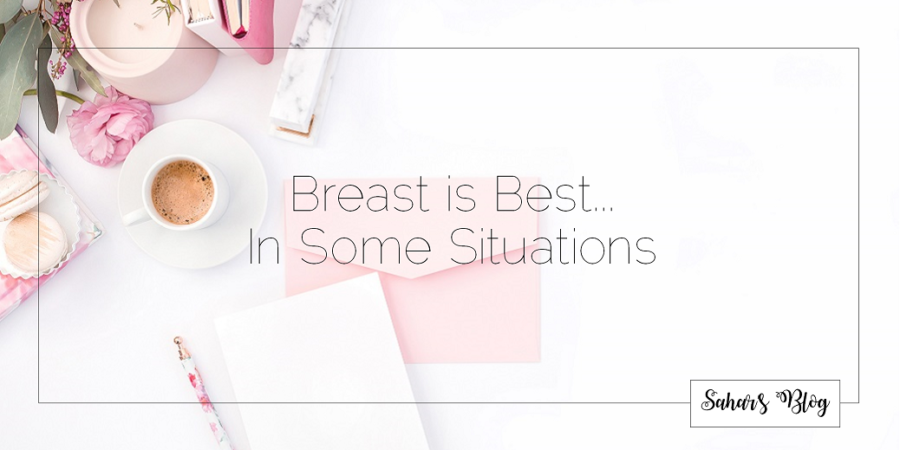Breast milk is honestly one of the most amazing things a woman’s body is able to do. It’s the perfect food, available by request, endlessly adaptable to the need of her baby. Biologically speaking, in normal circumstances, breast milk is, indeed, the best thing a baby can eat.
However, things are not that simple, are they? There are situations that occur very regularly that interfere with a woman’s ability to breastfeed.
Biological Reasons For Not Breastfeeding
There are a good number of conditions, illnesses, and diseases that are contraindications to breastfeeding. All those aside, sometimes, it just doesn’t work out. Unfortunately, I do have an anecdote to share about this. A friend of mine tried for three months to breastfeed, to no avail, despite the help of countless professionals, including the best that money could buy. There is no reason for her not to have been able to breastfeed; no medical condition, no stress, no illness, no mechanical issue, nothing. It just didn’t work out.
Social Reasons For Not Breastfeeding
Many women who are biologically primed to breastfeed are put in positions by the way our society is currently built that prevent them from breastfeeding, including: maternity leaves as short as two weeks; incredible amounts of stress; the lack of public places to breastfeed combined with public shaming of women who “dare” show their breasts for the sake of feeding their baby; the lack of good maternal nutrition; the lack of social support, putting an endless number of responsibilities solely on the shoulders of a mother who can’t afford to take a couple of hours a day to breastfeed; etc. Many, if not most of these, women, would like to breastfeed; but one look at the way their days are shaped, by necessity no less, makes it clear that it is impossible for them to do so.
The Cruelty of the so-called Mommy Wars
Guys, I am just so fed up that these women are guilt-tripped for not breastfeeding their babies. Don’t you think they love their babies unconditionally and want what’s best for them? The more I talk to women around me, the more I realise that being able to breastfeed is becoming a bit of a luxury; while it is something that all mothers should be able to easily give to their children, the world we have created around us doesn’t create the necessary conditions for this to easily happen. And instead of addressing the question, we waste our time and energy guilt-tripping mothers who are already deprived of the precious opportunity to breastfeed.
Final Thoughts
So, dear “breast is best” fanatics—i.e. those who don’t even take the time to understand why a woman isn’t breastfeeding their baby before condemning them and labelling them as bad mothers—I suggest that instead of pressuring women who don’t breastfeed, you instead focus on addressing the root cause: a society in which parents are not supported, in which both the mother and father are at increasing risk of postpartum depression, in which mothers are forced to start work a mere two weeks after giving birth, in which fathers have next to no paternity leave, etc.
I sincerely feel that when our intentions are good, we are able to step away from the issue at hand and refocus our energy on the root cause rather than on the symptom. But I also sincerely feel that, when we are only in it for the wrongs reasons, we end up perpetuating the very thing we feel so strongly against.


[…] Source: Breast is Best—In Some Situations — Sahar’s Blog […]
If people redirected the energy of judgment and outrage toward something useful—maybe support of a mother instead (gasp!)—just imagine what we could do. Fed is best indeed.
Oh wow, what we could do without judgement and outrage… What a world we would create!!!
There are so many varying reasons why woman feed by the bottle or the breast. We just can’t judge a mum based on what she does because you just don’t know the heartache that may have gone along with that decision. I felt incredibly lucky I was able to breast feed both my children with no real dramas but I know it doesn’t come that easily for some even when it is their second or third child. No two children are the same xx